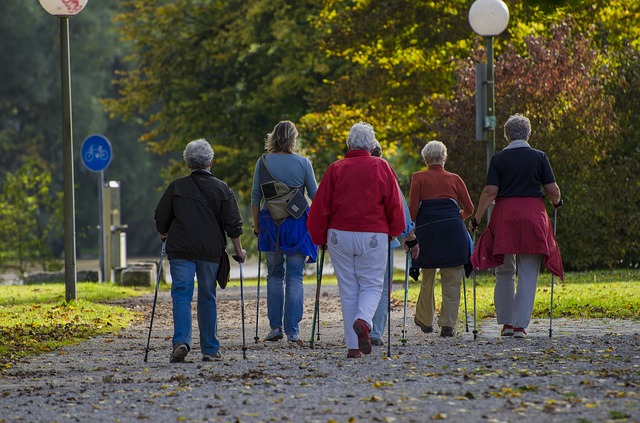Why is maintaining your balance so important?
It’s estimated that around 2.8 million older people are treated for fall injuries each year.[1] One of the more common causes for falls is a lack of balance.
When you have good balance it’s easy to take it for granted. Your balance helps you see clearly and understand your spacial awareness. It helps you make changes to your posture and adjust to variations in your environment. But when your balance is off, even simple things like getting out of bed in the dark, negotiating uneven terrain or walking down stairs can be challenging and dangerous. When you’re unsteady you can feel dizzy, have vertigo, hearing or vision problems and even find it difficult to concentrate.
Why does our balance change as we get older?
 There are a variety of factors that can impact your balance like:
There are a variety of factors that can impact your balance like:
- inner ear problems;
- head injury;
- low or high blood pressure;
- certain medications;
- neurological conditions;
- and arthritis; [2]
Additionally, as we get older, our balance declines because we lose muscle mass, our bones become weaker and other sensory input like vision diminishes.
What are some good ways to maintain or improve your balance?
There are many activities and exercises that can help you improve your balance as you age.
Tai Chi
Tai Chi is a slow and graceful practice that helps strengthens the body while focusing the mind.
Tai chi is especially useful for improving balance and preventing falls—a major concern for older adults. Studies have shown tai chi to reduce falls in seniors by up to 45%
Harvard Health Blog – http://www.health.harvard.edu/blog/try-tai-chi-to-improve-balance-avoid-falls-201208235198
Yoga
Yoga helps to improve your flexibility while strengthens your core and other muscles.
Walking
Walking is an excellent exercise because it helps strengthen the muscles and bones you rely on for proper balance.
Stay Hydrated
Drinking enough water to stay hydrated helps you balance too. When you’re dehydrated it can weaken your muscles and cause you to feel dizzy which can result in a fall.
Get a Good Night’s Sleep
Studies show that sleep deprivation is directly related to falls. In fact, men with excessive daytime sleepiness were more prone to falls and those who slept fewer than 5 hours a night were at a higher risk for recurring falls.[3]
Summary
Staying well balanced as you age is important to prevent falls which can lead to bone fractures, head injuries and even death. Staying active, hydrated and getting plenty of rest are a few things you can do to maintain or improve your balance as you age.
References
- Welcome to WISQARS™. (2016). Retrieved January 03, 2017, from http://www.cdc.gov/injury/wisqars
- (n.d.). Retrieved January 03, 2017, from https://www.nidcd.nih.gov/health/balance-disorders#3
- Stone, K. L., Blackwell, T. L., Ancoli-Israel, S., Cauley, J. A., Redline, S., Marshall, L. M., . . . The Osteoporotic Fractures in Men (MrOS) Study Group. (2014). Sleep Disturbances and Increased Risk of Falls in Older Community-Dwelling Men: The Outcomes of Sleep Disorders in Older Men (MrOS Sleep) Study. Retrieved January 03, 2017, from https://www.ncbi.nlm.nih.gov/pmc/articles/PMC3945231/




